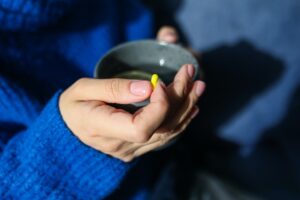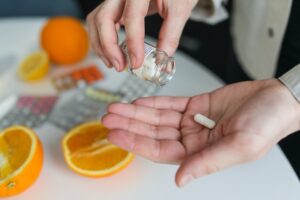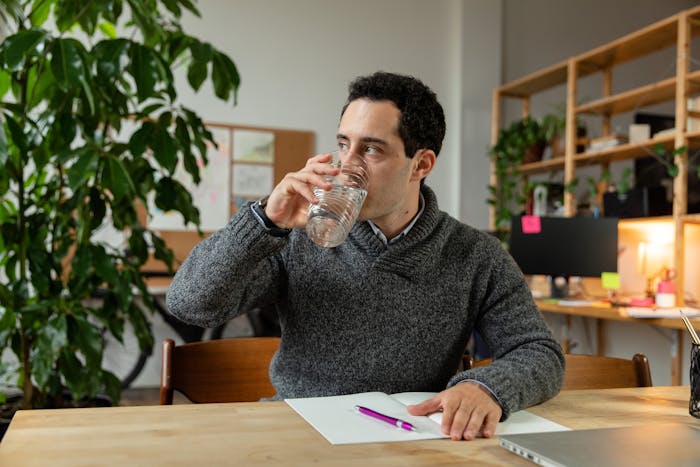Between April 2020 and March 2021, it was estimated that over 275,890 individuals had come into contact with a drug and alcohol rehab service in England alone.
Out of this figure, only 130,490 had ended up entering a rehab facility.
Of these who contacted or entered a rehab treatment programme provider or facility in 2020 and 2021, these are only the confirmed figures.
To combat addiction, we must help and encourage those who are reluctant to seek support for their condition.
More specifically, in the Isle of Man, it was estimated that in any year, 50% of arrests involve alcohol.
It was estimated that 63% of those who entered treatment in England, which is over 82,000 individuals, also needed mental health treatment.
The Isle of Man saw a similar statistic, with around 60% of those entering rehab needing additional mental health treatment (dual-diagnosis).
It was also discovered that cannabis is the most frequently seized drug among the local population in the Isle of Man, followed by cocaine and then heroin.
The same study estimates that almost 75% of those who enter prison also test positive for an illicit substance such as fentanyl or ketamine at one point.
Almost half of the people imprisoned for burglary or theft in the Isle of Man are dependent on illicit drugs such as cocaine, heroin, and so on.
Rehab is needed more than ever on the Isle of Man.
Drug-related mortality appears to be higher in the Isle of Man when compared to the rest of England.
Clearly, drug and alcohol consumption is a problem not only in England but in the Isle of Man.
Addiction or dangerous levels of consumption have a profound effect on its community, leading to violence, crime, increased public expenditure, relationship breakdown, mental health issues, and much more.
Please call our 24-Hour Helpline for further advice about drug and alcohol rehab Isle of Man: 0800 140 4690

Contrary to previous misconceptions and stigmatisation surrounding addiction, it is, in fact, officially recognised as a disease by neurologists.
Misconceptions still surround addiction in the way that people believe it is a choice or due to a lack of discipline.
No matter how disciplined a subject is, if they are addicted to a substance, they are suffering from a brain disease.
Addiction is a disease consisting of chronic brain relapsing, and this is the way it’s treated at rehab.
Once a subject has repeatedly exposed themselves to an addictive substance such as alcohol (alcoholism), heroin, ketamine or cocaine, for example, neural pathways are forged and altered in the brain.
This reward pathway is altered, which creates a chemical reaction whereby subjects are physically or psychologically dependent on an addictive substance.
In turn, when they abstain from this addictive substance, they will begin to experience discomforting drug withdrawal or alcohol withdrawal symptoms.
This is why it’s so hard to recover alone, and much easier with support like rehab.
Please call our 24-Hour Helpline: 0800 140 4690

Addiction symptoms will vary, and they can manifest in many ways.
Depending on your addiction history, symptoms can be physical or psychological.
Physical withdrawal symptoms come in the form of trembling, nausea, fatigue, headaches, diarrhoea, and sickness, and it can even cause seizures.
If left untreated, physical withdrawal symptoms can be severe enough that they lead to death.
Rehab can monitor them with around the clock medical care.
These kinds of symptoms are associated with physically addictive substances such as alcohol or heroin, for example.
Due to the risks of suddenly abstaining from a physically addictive substance, patients will need to undergo a medicated detox at a rehab facility to ensure that they can recover safely.
On the other hand, psychological symptoms will present withdrawal symptoms such as anxiety, paranoia, insomnia, or even depression.
While they are incredibly problematic, they don’t necessarily present the same risks as a physical addiction.
Substances that are psychologically addictive include but aren’t limited to alcohol, cocaine, cannabis, and more.
Please call our 24-hour helpline to discuss rehab on the Isle of Man: 0800 140 4690

When looking into drug and alcohol rehab in the Isle of Man or anywhere else, many people find themselves overwhelmed by the depth and complexity of this subject.
There’s inpatient vs outpatient (more on that later). Treatment can change depending on what you’re addicted to, as well as, of course, the severity of your addiction.
But luckily, you don’t have to make all of these decisions for yourself.
If you choose to get in touch with Rehab 4 Addiction, after a conversation to assess your needs, we’ll come up with a personalised treatment plan that works for you.
This is another reason why reaching out as soon as you can is so often the right choice.
We can take the stress out of these earlier stages by guiding you based on a combination of what you tell us and our previous experience.
In our assessments or the assessments of any other organisation, there are a few questions you’ll typically be asked at rehab.
Some of the most common are:
Please call our 24-hour helpline: 0800 140 4690

Many people who suffer from drug and alcohol addiction in England and the Isle of Man are either too reluctant to seek support or are turning a blind eye to their addiction and its effects.
When this is the case, Rehab 4 Addiction can help family members by assigning them an interventionist in the Isle of Man.
This is a way of assessing if your loved one is ready for rehab, and gives you a chance to explain your concerns.
This interventionist will help facilitate intervention in the Isle of Man, where family members and friends of the addicted person can meet in a non-confrontational environment.
During an intervention, loved ones will express their thoughts and feelings about how the addicted person’s disease is affecting them and why they want them to seek support at rehab.
Please call our 24-hour helpline: 0800 140 4690

Drug and alcohol rehabs vary in their costs. The cost is location-dependent, and it also depends on the quality of its facilities, accommodation, its reputation and quality of staff, and so on.
The cost of stay per week at a drug and alcohol rehab in the Isle of Man will vary from £1,000 to £10,000 per week.
This means that because patients will typically spend around 28 days at a drug and alcohol rehab in the Isle of Man, costs for their full stay will range from around £4,000 to £40,000.
It is important to compare facilities in order to ensure that you are choosing the one that is right for you.
It is wise to create a list of what you prioritise most, whether it is affordability, location, quality of accommodation or facilities, and so on.
Please call our 24-Hour Helpline for further advice about drug and alcohol rehab in Isle of Man: 0800 140 4690

If a subject has health insurance, it is possible that they may be covered for some of the treatment costs at their drug and alcohol rehab on the Isle of Man.
Private health insurance or employee health insurance may cover the cost of therapies or counselling sessions, or accommodation, for example.
It is important that patients coordinate with their insurance provider to disclose that they have an addiction and enquire as to what their health insurance covers them.
Rehab 4 Addiction can help patients by providing them information on what is included during their recovery at rehab, and patients can use this information to coalesce with their health insurance provider.
Please call our 24-Hour Helpline: 0800 140 4690

Drug and alcohol rehabilitation centres are available through the NHS. This is often appealing to patients because of its affordability. However, many issues surround treatment availability.
Due to the fact that it is free, demand for treatment is high, meaning that it is difficult to cater to each patient that applies for treatment.
The NHS typically offers outpatient rehab, which doesn’t offer as much care as inpatient rehab.
It has also been criticised for its lack of personalisation and lack of intensiveness when it comes to treating patients.
Should patients want to receive funding for a residential rehab by the NHS, they may face a long and tedious process with the chance of their application being rejected.
Patients will need to be referred by their GP or local hospital in order to make a case for residential rehab funding.
Applications can take as long as months, and during this time, it is likely that the addiction will have worsened significantly.
Please call our 24-Hour Helpline: 0800 140 4690

The length of time that patients will undergo drug or alcohol addiction treatment will vary according to the patient, their facility, and whether they are an inpatient or an outpatient.
Typically, inpatients will spend around 28 days undergoing drug addiction treatment at rehab in the Isle of Man.
Here, they will spend around seven-to-ten days undergoing a medicated detox (if required).
Next, you will begin a programme of counselling and therapy sessions to tackle mental, behavioural and emotional issues.
Finally rehab will help you with relapse prevention planning.
Outpatients will spend less time undergoing treatment during the week; however, they may spend longer than 28 days undergoing recovery.
Because services are free and the services of fellowship programmes are available, patients can undergo recovery with free services for longer than at a residential or private facility (private residential rehab).
Along with outpatients, fellowship programmes and free services are an excellent option for inpatients who have recently left their residential rehab.
This is because recovery is not achieved overnight but should be maintained in the long term.

When patients are undergoing addiction treatment at a rehab in the Isle of Man, their recovery programme may vary according to the substance abuse drugs or alcohol that they consume.
For example, patients who are suffering from heroin or alcohol addiction will be required to undergo a medicated detox.
A medicated detoxification at rehab is required for those who are suffering from physical addiction.
Alcohol and heroin are both physically addictive drugs, and they can present withdrawal symptoms such as trembling or even seizures.
It is important that these patients undergo pharmacological intervention and medical supervision at rehab in order to help them recover safely.
During a medicated detox and pharmacological intervention, patients will spend around seven-to-ten days in a safe and comfortable environment with medical supervision.
They may receive Librium, Naltrexone, Subutex, or else in order to help minimise their withdrawal symptoms.
Once you have successfully overcome their withdrawal symptoms, you can then proceed to tackle mental, behavioural and emotional issues at rehab.
They will also learn about relapse prevention planning in order to increase their likelihood of sustaining sobriety.
Please call our 24-hour helpline for further advice about drug and alcohol rehabilitation services in Isle of Man: 0800 140 4690

Drug and alcohol addiction treatment are generally initially divided into two categories: inpatient and outpatient.
Inpatient is the most common, as it’s mostly recommended for those with moderate to severe alcohol or drug dependency.
As the “in” part of the name would suggest, it means you’ll stay at and be treated in a residential rehab facility.
A lot of people find the 24/7 access to care, as well as the change in environment, the key to breaking the toxic cycles that they were previously in.
This can also apply to people with negative home environments worsening their addiction.
Of course, some people are in the opposite of those circumstances and would feel very uncomfortable being treated away from home.
Or they could have a less severe problem that doesn’t require something as big as residential rehab.
That’s where “out” patient treatment comes in. Many of the same treatments will be available to you if you go down this path but in a more localised context.
For example, both inpatient and outpatient rehab treatment often use therapy and counselling.
The only difference is that the therapy in inpatient treatment will be in a centre and in a wider context of treatment all around you.
On the other hand, outpatient rehab would most likely mean visits to a local therapist.
It’s also the same for physical treatments, such as massages, reflexology and acupuncture.
If it turns out to be a kind of treatment that suits you, you’ll go to sessions of these, both inpatient and outpatient.
But the context in which you’re experiencing them will be different.
Rehab 4 Addiction offers several programmes on the Isle of Man, covering all kinds of treatment, as well as a huge range of addictions.
We also have several specialist rehabs, which also cover multiple mental health issues.
If you contact Rehab 4 Addiction, we’ll be able to discuss which ones specifically are right for you.
Please call our 24-Hour Helpline for further advice about drug and alcohol rehab in Isle of Man: 0800 140 4690

There are many forms of therapies, and their diverse nature will benefit patients significantly.
Addiction presents many issues and symptoms which require different treatment methods.
Please call our 24-hour helpline for further advice about drug and alcohol rehab in Isle of Man: 0800 140 4690

Cognitive Behavioural Therapy (CBT) is one of the most widely used and recognised forms of therapy.
It is often implemented in addiction rehab recovery programmes as well as for patients suffering from mental health issues such as depression.
The purpose of CBT is to help the patient recognise any behavioural addictions issues, cognitive distortions or self-destructive tendencies that they have.
These patterns may present obstacles when it comes to recovering from addiction, and the purpose of CBT at rehab is to help them adopt healthier coping mechanisms and lifestyle habits.
Please call our 24-hour helpline for further advice about drug and alcohol rehab in Isle of Man: 0800 140 4690

Dialectical Behavioural Therapy (DBT) is very similar to CBT in that its purpose is to help patients overcome negative forms of thinking and adopt healthier habits, but it puts more emphasis on the emotional side of things.
It is commonly used to treat patients at rehab who suffer from anxiety, addiction, or trauma.
The desired goal of DBT is that the patient will become much more rational in their approach toward addiction recovery and other stressful life issues.
Please call our 24-Hour Helpline for further advice about drug and alcohol rehab in Isle of Man: 0800 140 4690

Based on the language of change, Motivational Interviewing is a form of therapy implemented to reinforce and sustain the patient’s motivation toward recovery.
It is a goal-oriented style of therapy.
During a typical Motivational Interviewing session at rehab, a licensed counsellor will act as an interviewer, and the patient will be asked many evocative questions about their journey toward recovery.
The purpose is to consolidate the patient’s intentions of recovery by having them discuss and manifest their goals.
Please call our 24-hour helpline for further advice about drug and alcohol rehab in Isle of Man: 0800 140 4690

Not all forms of therapy are formal or include a licensed counsellor asking questions to the patient.
Holistic therapy is a varied form of therapy which can be incredibly relaxing or engaging.
Some examples of holistic therapy include but aren’t limited to adventure therapy, yoga, mindfulness, massages, equine therapy, music therapy, fitness, and much more.
Due to the varied nature of holistic therapy, there will certainly be a form which appeals to each patient at rehab.
Patients who have undergone holistic therapy reported experiencing decreased levels of stress and anxiety and an increase in general well-being.
It is an all-encompassing form of therapy which aims to heal the mind, body, and spirit of its patients.
Please call our 24-hour helpline for further advice about drug and alcohol rehab in Isle of Man: 0800 140 4690

Group therapies are effective because your peers at rehab can help reinforce your motivation to recover.
Patients will undergo group therapy with other patients who all have the same goal in mind – to recover from addiction and consolidate new lifestyle changes.
Being in the same environment as people who are adopting healthy lifestyle changes such as abstinence makes it much more likely that patients will sustain their newfound and healthy lifestyle.
Please call our 24-Hour Helpline for further advice about drug and alcohol rehab in Isle of Man: 0800 140 4690

It is not only important that the addicted person is treated, but it is important that their families and friends are taken into consideration as well.
While the addicted person at rehab might experience a range of direct symptoms, friends and families will feel indirect effects such as emotional trauma, relationship breakdown, and much more.
Family Therapy aims to educate the family on their loved one’s addiction.
It also helps them by offering communication skill training and relapse prevention planning at rehab, and it can help break down the stigmas surrounding addiction.
In turn, the addicted person’s network of support is stronger, and they can communicate about their addiction in a safe environment.
Please call our 24-Hour Helpline for further advice about drug and alcohol rehab in Isle of Man: 0800 140 4690

It is often the case that those who are suffering from addiction are also suffering from some form of mental health condition.
In fact, it was estimated that over 60% of adults who entered treatment in England required additional treatment for a mental health condition.
When you contact Rehab 4 Addiction to complete your health assessment, you will have the opportunity to disclose your additional mental health needs.
Before you enter a rehab facility, it is important that you state your requirements during your time recovering at a rehab in the Isle of Man.
Our trained admissions officer will then pass the information to a consultant psychiatrist.
A dual diagnosis will be made to ensure that your mental health concerns are addressed during your addiction treatment in the Isle of Man.
Please call our 24-Hour Helpline for further advice about drug and alcohol rehab in Isle of Man: 0800 140 4690

Not only should patients be helped to recover from addiction, but they must also know how to maintain their recovery once they leave their rehab in the Isle of Man.
Recovery is something that must be sustained for life.
Therapies such as CBT and DBT also help reinforce relapse prevention strategies and strengthen your recovery after rehab.
During which patients will become more rational and capable of managing their negative thoughts and bad habits in the event that they’re exposed to relapse triggers.
More specifically, HALT (Hungry, Angry, Lonely, Tired) is an effective relapse prevention tool which is often adopted in rehabilitation.
The method helps patients understand what to do when they may be exposed to cravings due to physical, social, or emotional needs.
Whether patients are feeling anxious or are in a social environment which presents relapse triggers, they will learn how to overcome these triggers after rehab.
It all comes down to developing healthy coping habits and having a plan in place should the possibility of a relapse arise.
Please call our 24-Hour Helpline for further advice about drug and alcohol rehab in Isle of Man: 0800 140 4690

Any addiction expert will tell you that, due to its difficult physical and psychological nature as a disorder, it’s a lifelong battle.
As such, aftercare is always recommended to those finishing their initial treatment plan and leaving rehab.
Whether you’ve been through inpatient or outpatient treatment, this will most likely take the form of continued localised treatment, covering both the physical and psychological sides of addiction.
Please call our 24-Hour Helpline for further advice about drug and alcohol rehab in Isle of Man: 0800 140 4690

Whether an inpatient or an outpatient, fellowship groups at rehab can provide a myriad of benefits for those looking to sustain their recovery from addiction.
Fellowship programmes such as Alcoholics Anonymous (AA), Narcotics Anonymous (NA), and SMART Recovery will provide access to a support network and structured guidelines to patients who want to sustain their lifestyle of abstinence.
AA, NA, and SMART Recovery are examples of non-profit fellowship programmes which are free from any organisation.
This means that they can be relied upon and that patients will have their well-being and recovery taken seriously.
You could attend these while at rehab, or once you leave.
In a reputable fellowship programme like those previously listed, patients will be at the forefront of the group’s priority.
Sessions can be attended in person or online. You can use pages such as AA’s Find a Meeting tool to see what is available in your local area.
This article was written by Boris Mackey. You can connect with Boris online at LinkedIn or X.com.
Please call our 24-Hour Helpline for further advice about drug and alcohol rehab in Isle of Man: 0800 140 4690
[1] Adult Substance Misuse Treatment Statistics 2020 to 2021: Report https://www.gov.uk/government/statistics/substance-misuse-treatment-for-adults-statistics-2020-to-2021/adult-substance-misuse-treatment-statistics-2020-to-2021-report
[2] Substance Misuse Strategy – Isle of Man Government https://www.gov.im/media/1374063/substance-misuse-strategy.pdf
[3] About the ASAM Criteria https://www.asam.org/asam-criteria/about-the-asam-criteria
[4] The CRAFT Approach https://drugfree.org/article/craft-approach-encouraging-healthy-constructive-positive-changes-family/
[5] Cognitive Behavioural Addiction (CBT) for Addiction https://www.rehab4addiction.co.uk/addiction-treatment/cognitive-behavioural-therapy-addiction
[6] Dialectical Behavioural Therapy (DBT) for Addiction https://www.rehab4addiction.co.uk/addiction-treatment/dialectical-behaviour-therapy-addiction
[7] Group Therapy for Addiction https://www.rehab4addiction.co.uk/addiction-treatment/group-therapy-addiction
[8] Family Therapy for Addiction https://www.rehab4addiction.co.uk/addiction-treatment/family-therapy-addiction
[9] Alcoholics Anonymous https://www.aa.org/
[10] Narcotics Anonymous https://na.org/
[11] SMART Recovery https://www.smartrecovery.org/
[12] Find a Meeting https://www.alcoholics-anonymous.org.uk/AA-Meetings/Find-a-Meeting/
 Addiction is often largely misunderstood, with many incorrectly labelling it as a lack of willpower, a moral failing or something that happens after a series of bad choices. When, actually, addiction is much more complex. It can be shaped by a number of things, such as trauma, mental health, the environment you grew up in […] .... Read More
Addiction is often largely misunderstood, with many incorrectly labelling it as a lack of willpower, a moral failing or something that happens after a series of bad choices. When, actually, addiction is much more complex. It can be shaped by a number of things, such as trauma, mental health, the environment you grew up in […] .... Read More
 After completing or trying your best for Dry January, it can be tempting to count the days left until you can give it all up and return to drinking. But there are multiple benefits to maintaining your abstinence into February and longer. During Dry January, your liver begins to repair itself, say if you were […] .... Read More
After completing or trying your best for Dry January, it can be tempting to count the days left until you can give it all up and return to drinking. But there are multiple benefits to maintaining your abstinence into February and longer. During Dry January, your liver begins to repair itself, say if you were […] .... Read More